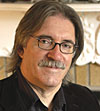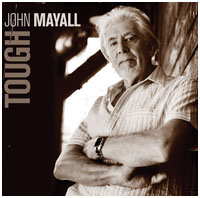Home » Jazz Articles » Profile » Janis: Memphis Meltdown
Janis: Memphis Meltdown
 I'd been hustling a meager living in the coffee houses and psychedelic joints of Greenwich Village in lower Manhattan when word spread of Janis Joplin's departure from Big Brother & the Holding Company. I can't say the announcement held the same aura as the Beatles imminent crack-up or Bob Dylan converting electric, but it did reverberate along Bleecker and McDougall streets attracting greater attention among working musicians than buskers. I for one reacted swiftly to rumor.
I'd been hustling a meager living in the coffee houses and psychedelic joints of Greenwich Village in lower Manhattan when word spread of Janis Joplin's departure from Big Brother & the Holding Company. I can't say the announcement held the same aura as the Beatles imminent crack-up or Bob Dylan converting electric, but it did reverberate along Bleecker and McDougall streets attracting greater attention among working musicians than buskers. I for one reacted swiftly to rumor.Word came Janis was assembling a rhythm & blues band much like the high flying Memphis bands, somewhere between Sam and Dave and Otis Redding. It was a sound originating from Soulsville USA Studios in Memphis, Tennessee and reproduced on vinyl by Stax/Volt records.
I popped in a record store on Eight Avenue, one frequented on many occasions for it's diversity and scanned the jacket cover of Cheap Thrills, Joplin's most recent recording. I scanned for clues to management with no success before asking a clerk for assistance. He pointed to a recording by the Electric Flag, a contemporary rhythm & blues band who shared the same management. It turned out to be Albert Grossman, noted for successful campaigns in behalf of Peter, Paul and Mary, Bob Dylan, Paul Butterfield and others.
I dialed Grossman's office and was directed to associates Vinnie Fusco and Elliot Mazior who were closely involved in Joplin's affairs. An audition was arranged at A-1 Studios the original home of Atlantic Records. Before the date, I was summoned to an informal meeting with Albert Grossman.
I waited outside his office clutching the one recorded document of my playing, a b-side instrumental to a single by California soul unit, Kent & The Kandidates whose claim to fame was backing band on the million seller "Gimme A Little Sign," recorded by a local dishwasher named Brenton Wood.
Upon entry I catch a glimpse of Grossman through several towering stacks of papers positioned like a fortress rather than work in progress. Speaking in a near whisper Grossman beckoned me forward. While standing there listening to his take on Joplin's radical plan I couldn't help ponder how much he looked like Ben Franklin with flowing white locks tied in a ponytail and small wire-framed glasses. As far as I was concerned he could have been one of the original signatures on the Declaration of Independence. Whatever transpired in conversation landed me both duties of keyboardist and music director.
The first audition was little more than a formality geared to access the compatibility of the players. The second audition involved recording the soulful number " Piece of My Heart" at the Hit Factory. A final mix was sent to Janis for approval.
Drummer Roy Markowitz and I landed jobs. Bassist Stu Woods didn't suffer the loss instead went on to work as sideman and record with Bob Dylan, Don McLean, Pozo Seco Singers, Tony Orlando & Dawn, Janice Ian and others. In many ways his career faired better.
After coming to a financial agreement a flight was arranged for Roy and I to San Francisco. No accommodation had been met other than a few nights arranged at a studio apartment belonging to the road manager's mother in North Beach. That was fine with me, I pretty much lived the past couple years out of a suitcase.
We met bassist Brad Campbell of the Last Words, the only Canadian in the group, at the temporary digs. Rolling Stone magazine had announced the hiring of both Brad and Skip Prokop from Lighthouse, but the latter player never materialized. It was probably just as well since the three of us had spent our lives in the shadows beyond the glare of spotlights and this was truly Janis's show.
Janis invited us to her Noe street apartment for a get-to-know-you session. After dragging our nightclub-trained bodies up a severe slope to Joplin's door, we were accosted by a snarling dog that dared entry. Joplin's live-in mate, ex-wife of blues singer Nick Gravenites, collected the dog then directed us to a small sitting room resplendent in Salvation Army home furnishings. A few somber moments pass when Joplin burst from the hallway like a Texas whirlwind. She laughed and joked about a compact stereo Columbia Records had given her, which she checked as baggage during her flight home from New York. Janis watched its fatal plunge from an economy window seat as it bounced along transporting roller pins between cargo and flatbed eventually crashing to the tarmac below. The story was repeated throughout orientation.
Janis was the perfect host, serving shots of Southern Comfort and reefer sticks. When I passed on refreshments she paused and commented, "What did Albert send me, Christ?" I apologized and assured her I wasn't one of those bible-thumping southerners sent to protect her from a host of demons. She seemed more than comfortable with my assurances, and invited us back for dinner later that evening. Janis said there were a few friends she wanted us to meet.
When we arrived after nearly succumbing to the tortuous climb it was apparent a party was brewing in a nearby room. The soulful voice of Carla Thomas blared amongst the conversation of a few loitering denim clad men. As we reached the doorway to the dining room Janis charged in, steering us to what from a distance appeared to be a white stalagmite rising near an open window. As I moved closer it became evident it was a polished sculpture of a penis, a gift from a local Haight-Ashbury artist. The coveted centerpiece remained the focal point of conversation throughout the ensuing hour.
 With each rap at the door another group of tattooed denim jockeys enters, each grimier than the other. My team looked like choirboys at a prison picnic.
With each rap at the door another group of tattooed denim jockeys enters, each grimier than the other. My team looked like choirboys at a prison picnic.Janis journeyed from lap to lap kissing and hugging each man. Eventually, when the room overflowed she introduced us as her new hand-picked band and the men in denim as the Oakland Chapter of the Hell's Angels.
I was more than a bit uncomfortable especially when the drugs started flowing, music intensified and the booze spilt. The three of us politely excuse ourselves and inform Janis we'll meet again at rehearsal.
While we awaited the arrival of two horn players who had just completed service in the Electric Flag, Brad, Roy and myself scoured the pool halls of North Beach playing snooker until past midnight. We'd listen to jazz and trade road stories until our guts nearly cripple from laughter, relive the failed dinner party and speculate about the future. Roy and I never took rock music that seriously. Miles and Coltrane were the most talked-about players in our sphere; Joplin was merely a quirky individualist with a wide following. For the two of us it was a better gig than lounging about Grossingers in the Catskills.
Rehearsals began early December 1968 in the old Fillmore Auditorium. The floor below Carlos Santana was working his band through the final preparations for his Columbia recording debut. A floor below him, It's A Beautiful Day was putting the finishing touches on material for their first recording.
We shared great rapport with Carlos and company. During breaks each band would filter in and listen to one another restructure tunes. Santana was miles ahead of our newly assembled unit. His band loved playing and did it with precision and commitment. We had barely enough time to acquaint ourselves with unfinished and untried material before pressing ahead.
Day one, the band strolls in just past noon and takes their places. My position as leader was to bring order to the proceedings a role I'd played many times before but never on such a grand scale. Janis eventually slips in, introduces herself, and trades hugs with the horn players before drifting my way. She then slides along the organ bench near me and introduces a modest list of tunes hoping to bridge the raw elements of her persona with the classic sound of rhythm & blues. The marriage arranged in her head had yet to be consummated by the band.
First up was "Summertime" her signature wail. Guitarist Sam Andrews plays a fugue like riff leading to the bands entry. I wrote a counterpoint line meant to fatten the sequence. It became apparent organ didn't carry the same weight as amplified guitar giving Janis cause to rethink the intro. By the time the complete band enters Joplin all but forgets the odd coloring.
During the rehearsal I crafted horn lines for the Bee Gee's "To Love Somebody," which Joplin quickly transformed into a blues ballad ripe with guttural cries and evangelical testifying. I would convince her to give the old Eddie Floyd soul hit "Raise Your Hand" a try. It was a crack staple from my days with Kent & The Kandidates. The song had the same fat groove prevalent in Wilson Pickett's, "Midnight Hour and Mustang Sally" with a memorable gospel style shout chorus. The band reveled in the textures before imploding on "Ball and Chain" another squealing testimonial.
Rehearsals began to lose their luster the following week. Gone were the rock celebrities and energized sessions. Trumpeter Marcus Doubleday began showing up late. He made a heroin connection, which eventually took precedent over scheduled rehearsals. Janis was getting agitated spending more time carousing pool halls and nightspots than rehearsing. She was also drinking more. I could see more welts swell beneath her inset eyes. Acne infected nearly every pore of her scarred face. In fact, I was starting to dread daily meetings with her.
By December 18 guitarist Mike Bloomfield, noted for his groundbreaking work with the Blues Project, Paul Butterfield and others, unexpectedly appears. Bloomfield's turf was Greenwich Village, which led me to question his presence in our house. Janis arrives then introduces Bloomfield and asks us to jam a few tunes. We'd already made the Bloomfield connection through a shuffle blues prior to her entry. The piece lasted some twenty minutes. Janis then instructs us to play " Piece of My Heart.' Bloomfield plugs the holes with stinging blues lines, which seem to last an eternity. Once testing had been completed Janis confers in private with Bloomfield then emerges with the verdict. "Mike really likes the band," she declares.
The momentary reprieve was nearly broken when drummer Levon Helms of The Band fame arrives and Janis instructs us to play once again. Levon listens then awards the band another vote of confidence. I could sense uncertainty in Janis's body language. This was Janis' call. With it came vulnerability and responsibility. Gone was the comfort of Big Brother's blasting amps, plodding rhythms and close relationships.
I remember a conversation with producer John Simon who confided to me it cost him six months editing just to give Cheap Thrills a consistent flow. Steady tempos were foreign to the band.
 Janis roared at night. Brad and I would pile into the back seat of her psychedelic Porsche and cruise the seedier pool halls around the bay. She knew every oddball and misfit along the tour. Joplin treated them no differently than the band. If you were a friend you remained a friend.
Janis roared at night. Brad and I would pile into the back seat of her psychedelic Porsche and cruise the seedier pool halls around the bay. She knew every oddball and misfit along the tour. Joplin treated them no differently than the band. If you were a friend you remained a friend.I accompanied her to the Kaleidoscope Club to hear a local San Francisco group not long after she extorted a fur coat from Southern Comfort, ransom for her personal campaign in behalf of the beverage. Throughout the evening the luxury item dusted floors and served as a seat cushion rather than treasured garment. She eventually dragged me backstage to greet a few musicians before departing.
We arrive late evening at the Fillmore when Janis again pulls me back stage this time to meet Rod Stewart and Ron Wood who were performing with the Small Faces. The reserved Englishmen were no matches for her. Janis tried to warm the reticent musicians with her quick wit and undeniable charm with little success. She walked away commenting on what a bunch of tight asses British bands were.
A productive rehearsal soon became imperative after receiving an invite to play the second annual Stax/Volt Yuletide Thing at the Memphis Mid-South Coliseum. Isaac Hayes, Rufus and Carla Thomas, Johnny Taylor, the Bar-Kays, Booker T and the MG's, Eddie Floyd were just a few of the expected celebrity performers. Janis was eager to introduce the new band in an area rich in folk and blues history. The final rehearsal would have to take place down South.
During the Sunday drive from the airport the limousine driver makes an unusual turn and charts a path towards Jackson, Mississippi. Janis was in severe need of a drink. As the drive gets more confusing the urgency in her voice resonates throughout. A few terse words nearly turn into an explosive confrontation. A deal was eventually struck to let the band off at the hotel while the search continued.
We were booked into the Lorraine Motel the same structure that Martin Luther King was gunned down only months before. In fact, we were booked in adjacent rooms on the same landing.
Little fanfare greeted our arrival leaving Janis to her vices. As we stroll back to our rooms, Mike Bloomfield lumbers past toting a garbage bag full of pot. Roy stops him and asks for a joint. Bloomfield looks on with contempt and says, " I don't have enough." A startled Roy looks back at me then busts loose with laughter.
A rehearsal was set for mid-afternoon December 20th at Soulsville USA Studios. First sight of the shattered movie marquee made me question if we'd been driven to the wrong location. I would eventually learn the broken panes of glass were fronting an immensely successful, sophisticated operation.
As the doors spring open a cacophony of sounds unleash while several bands put the final touches to performance material. We wait until Booker T & The MGs complete a run through of prepared concert material then take positions behind our respective instruments. It was truly one of the most awkward situations I'd ever been in. First, the studio floor was on a slope due to its previous incarnation as a public cinema. Secondly, the number of certified super stars walking about not only excited but also added a level of intimidation. I mean these were my big heroes.
After a complete run through we drove on to the coliseum for set up. The sound check was a disaster. With an event the magnitude as this you would have assumed the promoters would have spent decent coin to rent adequate amplification. Instead, they propped up a couple column speakers found mostly in rural churches at the time. Enough wattage for a sermon but not reliable enough to carry the power of a raucous singer. Janis was flabbergasted. To compound matters, she spotted a poster of the event with her image and name posted larger than the other participants. The thought of headlining amongst such prestigious talent sent her into an apologetic rant.
All of the goodwill we received jamming at Soulsville USA Studio a day earlier would now be tested as the concert drew near. The many extraordinary people whose music made Stax Records the preeminent rhythm & blues record label of the day and whose hands we shook were relegated to minor status in their own community all because of a power play between booker and manager. In the end, Janis would be the big loser.
The evening crowd, mostly adoring women cheered for their idols, which seemed more like a fashion show for both the wealthy and poor. Rufus and Carla Thomas sang and cajoled the crowd with one-liners and jabs to an approving audience, phrases that seemed memorized from previous concerts. Booker T did the MG thing in a cool almost self-effacing manner. The Bar-Kays stole the night with an upbeat rhythm set dressed in zebra-stripped flannel jumpsuits.
As we took our places I soon discover the organ sound cutting in and out and Janis's mike distorting. I try in vain to get help but no one seemed particularly interested. The crowd offered minimal support. We were only a distraction, a brief interlude.
Janis tried her best to involve the audience but her music never caught fire. Even with the best soul intention, a bunch of white pretenders in psychedelic gear were no competition for the clean manicured presence of a Johnny Taylor and Eddie Floyd.
The set ended as it began without much consideration.
I felt sorry for Janis. She reviewed the brief time on stage and cool response as an indictment of her vision.
Janis's spirit was renewed later that evening at a party hosted by Stax/Volt president Jimmy Stewart. The sprawling ranch style house situated amongst lush tree-lined surroundings was the social center for invited guests from both the black and white communities. Behind these doors people could mingle without prejudice. All of the great Memphis singers and musicians were there.
Stewart had rigged various rooms with monstrous-sized Voice of the Theater speakers. Through the night he played unreleased tapes of Otis Redding, who had perished in a plane crash along with four of the original Bar-Kays December 10, 1967. There were many tears. As much as it was an occasion to celebrate it was nearing Christmas Eve, one in which all knew the great singer would be unable to attend. The music seemed to pierce the hearts of the most reluctant making the night both a somber and tender occasion.
We gathered around the main dining room table and aquainted ourselves with Booker T, Steve Cropper, Duck Dunn, Isaac Hayes and company. Janis was in an effervescent mood. She joked, laughed, poured drinks and talked music. All of us were swept away by her sincerity. Janis had a great heart, great sense of humor and quick tongue. She could banter with the best or confide on a personal level.
The following morning we meet for a final occasion. It was truly one of the saddest moments for me. Janis and Marcus Doubleday had passed out after returning from the concert. The both had shot up heroin. Janis had landed in Dallas a few days earlier to meet a young band she had befriended and was given a gift box of twelve syringes. Marcus and her would fight over the distribution that night. The thought sickened me.
I returned home for Christmas the winter of 1968 and was immediately detained by the FBI for draft-evasion then given a choice between jail time or the army. Army!
After basic training, I watched the Ed Sullivan show one Sunday evening from the Day Room in my barracks and witnessed my former band-mates and Janis play the arrangement of " Raise Your Hand' I had scripted only a six weeks earlier and nearly collapse into depression. I dare mention to those around I had anything to do with the band or the sound emanating through the old Sylvania.
A year passes when Janis arrives in Toronto to play the Festival Express June 29, 1970. I had left the army behind and began a new life in Canada. My band Homestead just happened to be opening act that day. I stuck around to see Janis, who was to play late afternoon. The first person I recognize is Brad, then the road manager who eventually escorts Janis over. There were hugs and kisses and genuine feelings exchanged. Janis remarked that she had quit hard liquor and had switched to wine. Heroin was also a memory and there was now a serious love interest in her life. She appeared happier than I'd ever believe possible. Her new ensemble, The Full Tilt Boogie Band, was her best. All of the blues, folk, rock and soul music concealed in her heart found a genuine medium for expression. The band was the perfect conduit.
My time with Janis was brief, only a month in length. During that eventful period much transpired. Her kindness and insecurities will always linger in my mind, but above all the sincerity and joy she brought to the music she loved will never be forgotten.
Tags
PREVIOUS / NEXT
Support All About Jazz
 All About Jazz has been a pillar of jazz since 1995, championing it as an art form and, more importantly, supporting the musicians who make it. Our enduring commitment has made "AAJ" one of the most culturally important websites of its kind, read by hundreds of thousands of fans, musicians and industry figures every month.
All About Jazz has been a pillar of jazz since 1995, championing it as an art form and, more importantly, supporting the musicians who make it. Our enduring commitment has made "AAJ" one of the most culturally important websites of its kind, read by hundreds of thousands of fans, musicians and industry figures every month.


























